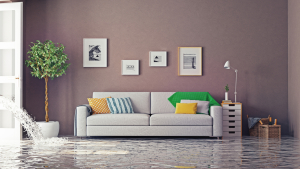 Leaving a home alone? No, I’m not talking about the 1990 movie, ‘Home Alone.’ This is about leaving your home alone, like empty and uninhabited. It might be voluntarily or involuntarily. Either way, there could be insurance implications.
Leaving a home alone? No, I’m not talking about the 1990 movie, ‘Home Alone.’ This is about leaving your home alone, like empty and uninhabited. It might be voluntarily or involuntarily. Either way, there could be insurance implications.
Let’s define some words to set the stage. You might think that “unoccupied” means the same as “vacant.” In fact, some courts and judges confuse them, but in insurance language, they mean different things. Very different things.
The meanings can mean the difference between there being coverage under a homeowner’s policy for an event and there being no coverage. The importance lies in the fact that different kinds of homeowner’s forms cover distinct kinds of risks. A policy form is the written contract that defines the obligations of you and the insurance company. A risk is the chance that an event might or might not happen.
Homeowners’ Insurance Meanings And Distinction
In homeowner’ insurance language, and for purposes of an insurance company assessing the risk that it is assuming when it issues a policy, there is a huge difference in meaning:
• A vacant home is usually considered to be one that is not just not lived in, but that has no contents—it is entirely empty. Stated otherwise, it has become nobody’s home.
• An unoccupied home is one in which nobody currently lives. That is, it is not now lived in in spite of there being things in it that would make it habitable, such as furniture and kitchen appliances.
Distinguishing Between Home Alone, Vacant, Unoccupied
The difference is based on the language of the homeowner’s insurance policy. Some policies exclude coverage when the residence is “vacant” while others have broader exclusions. The ones with the broader exclusions do not cover residences that are “vacant, unoccupied, or uninhabitable.” The second category, therefore, excludes coverage even when the home is livable (for example, when there is furniture in it).
So What?
Suppose that you take a world cruise that will last for two months. Also assume that nobody is staying at home while you are away. Most homeowner’s insurance policies have limitations on how long a home can be unoccupied before the policy can be canceled.
Why, you ask. If the residence is occupied (someone living in it) and, for example, a pipe bursts, the chances are that the damage can be contained. The water source can be turned off, a plumber and a water extraction service called, and by those means, damage can be minimized. It’s a much different story if the house is empty for two months.
What to Do?
1. Take sensible precautions to guard your home from harm if it will be empty for a long time. These include turning off water at its source, emptying the refrigerator, and unplugging appliances.
2. Review your homeowner’s insurance policy for information and instructions that apply during periods of extended absences from home. If you don’t understand it, contact The Insurance Problem Solver.
3. Call your homeowner’s insurance agent or the homeowner’s insurer and inform it/them that you will be gone for an extended period. It may be possible to obtain a rider to your policy to cover these circumstances.
